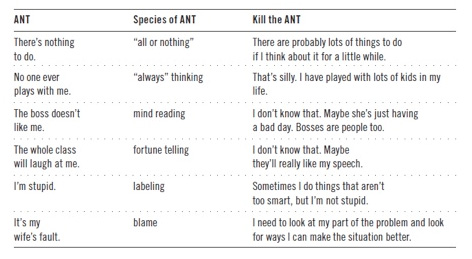 By Daniel G. Amen, MD
By Daniel G. Amen, MD
“I’m so stupid.”
“I’m always messing things up.”
“No one ever wants to be with me.”
For those with ADD, these types of negative beliefs are common. They become ingrained from experiencing continual frustrations at school and work, the cruel things that others say during moments of frustration, and from the bullying that many children with ADD endure.
It’s important that ADD people learn to gain control over these thoughts because how we think “moment by moment” has a huge impact on how we behave in the future!
For example:
- An ADD child or teen may believe that they’ll fail in school — because that was their experience at some point in the past — so they will not try.
- An ADD adult may believe that they are doomed to have poor relationships — again, because that was their experience in the past — so they will engage in the same, repetitive behaviors that impairs their ability to relate to others.
These types of negative thoughts often “just happen,” so we call them Automatic Negative Thoughts. When we take the first letter from each word, it spells ”ANT.”
Whenever ANTs creep into the mind, they must be eliminated! We eliminate them by talking back to them; if we don’t, ANTs become the seeds of future anxiety and depression.
Some people tell me they have trouble talking back to their ANTs because they feel that they are lying to themselves. Initially they believe that all of their thoughts must be true.
Don’t be fooled – your thoughts can, and will lie to you!
Eliminating ADD ANTs:
- Whenever an automatic negative thought enters your mind, train yourself to recognize its type and write it down (see types below).
- Talk back to the ANT – this takes away its power so you can gain control over your moods and feel better.
ANT Types:
- “All or nothing” thinking: thoughts that are all good or all bad.
- “Always” thinking: thinking in words like always, never, no one, everyone, every time, everything.
- Focusing on the negative: only seeing the bad in a situation.
- Fortune telling: predicting the worst possible outcome to a situation with little or no evidence for it.
- Mind reading: believing that you know what another person is thinking even though they haven’t told you.
- Thinking with your feelings: believing negative feelings without ever questioning them.
- Guilt beatings: thinking in words like should, must, ought, or have to.
- Labeling: attaching a negative label to your self or to someone else.
- Blame: blaming someone else for the problems you have.
Examples:





